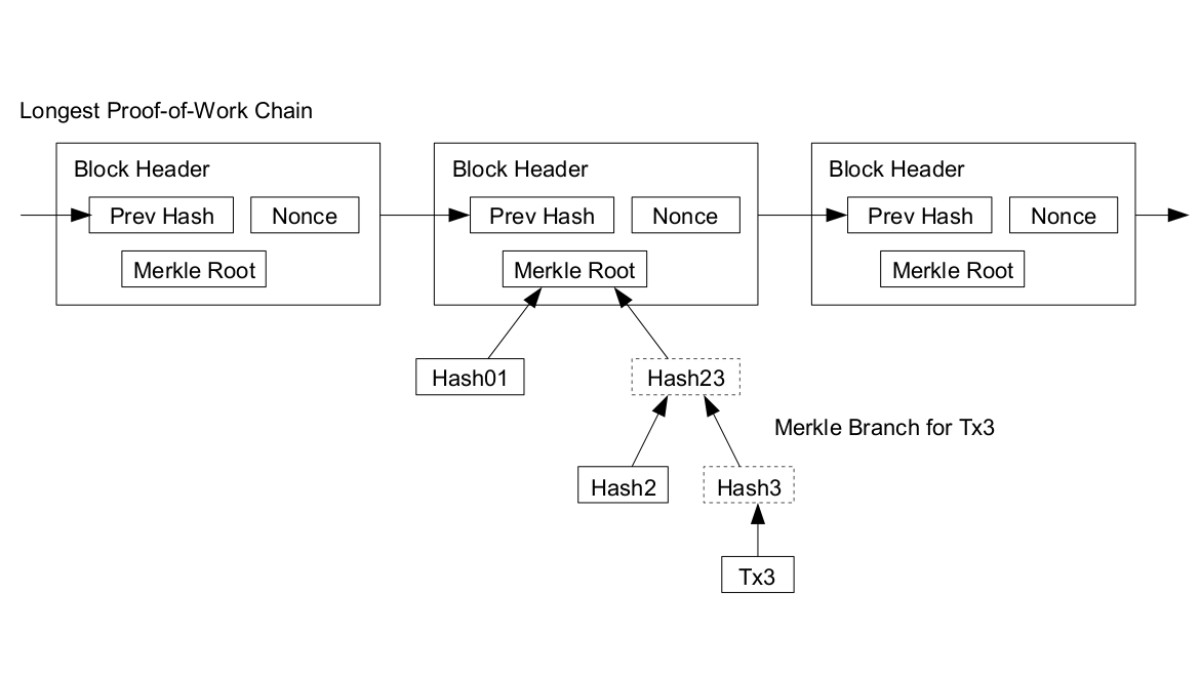Introduction
Welcome to the world of smart contracts, where technology meets traditional contracts to revolutionize the way we do business. In today’s digital age, the need for secure and efficient contract enforcement has become more crucial than ever. Smart contracts bring a new level of transparency, security, and efficiency to the contract management process, solving many of the problems associated with traditional contracts.
But what exactly are smart contracts? In simple terms, smart contracts are self-executing agreements with predefined terms and conditions embedded into computer code. These contracts automatically enforce the terms and execute the agreed-upon actions without the need for intermediaries or third-party involvement.
Traditional contracts have long been the backbone of business relationships, but they have their limitations. These contracts often rely on subjective interpretation, time-consuming manual processes, and the involvement of intermediaries to enforce the agreed-upon terms. This can lead to delays, disputes, and increased costs.
Smart contracts, on the other hand, provide a solution to these problems. By utilizing blockchain technology, smart contracts offer enhanced security, transparency, and efficiency in contract enforcement. They eliminate the need for intermediaries, automate the execution of contractual obligations, and ensure that the agreed-upon terms are met without any room for misinterpretation.
In this article, we will delve into the various problems associated with traditional contracts and how smart contracts solve these issues. We will explore the improved security, transparency, and decreased costs offered by smart contracts. Additionally, we will provide real-life examples of how smart contracts have been successfully implemented to solve existing problems.
However, it is important to acknowledge that smart contracts also come with their own set of challenges and limitations. We will discuss these potential obstacles to provide a comprehensive understanding of the technology’s capabilities and limitations.
So, let’s dive into the world of smart contracts and explore how they are transforming the way contracts are created, executed, and enforced.
What are Smart Contracts?
Smart contracts are computer programs that automatically execute predefined actions based on the terms and conditions outlined in the contract. These contracts are coded using blockchain technology, a decentralized and distributed ledger system, which ensures the transparency, security, and immutability of the contract.
Unlike traditional contracts that rely on intermediaries to enforce the agreed-upon terms, smart contracts operate autonomously. They eliminate the need for trusted third parties and instead rely on a network of computers (nodes) that validate and execute the contract’s instructions.
The primary feature of smart contracts is their self-executing nature. Once the conditions specified within the contract are met, such as a specific date, event, or payment, the contract automatically triggers the predefined actions without any human intervention. This automation eliminates the potential for human error, delays, and disputes that are often associated with traditional contract enforcement.
Smart contracts are composed of several key components:
- Code: The contract’s terms and conditions are coded into the program, defining the actions to be executed.
- Data: The contract holds and processes relevant data, such as transaction details, ownership rights, or other information specific to the contract’s purpose.
- Distributed Ledger: Smart contracts utilize blockchain technology to store and share the contract’s information across a network of computers, ensuring transparency and immutability.
- Execution Environment: Smart contracts operate within a secure and decentralized execution environment, where the coded instructions are executed and validated by the network’s nodes.
Smart contracts have a wide range of applications across various industries. They can be used for financial transactions, supply chain management, healthcare, legal agreements, real estate transactions, and much more. The potential use cases for smart contracts are virtually limitless, as long as the terms and conditions of the agreement can be clearly defined.
Overall, smart contracts offer a paradigm shift in contract management. They introduce efficiency, transparency, and trust into the contract enforcement process, reducing costs and providing a secure framework for conducting business transactions. With their ability to automate and streamline operations, smart contracts are poised to become an integral part of the digital economy.
The Problems with Traditional Contracts
While traditional contracts have served as the foundation of business relationships for centuries, they are not without their limitations. These limitations often result in inefficiencies, higher costs, and potential disputes. Here are some of the key problems associated with traditional contracts:
- Lack of Transparency: Traditional contracts can be complex and lengthy, making it difficult for all parties involved to fully understand and interpret the terms and conditions. This lack of transparency can lead to misunderstandings, misinterpretations, and even disputes.
- Manual Processes: The process of creating, executing, and enforcing traditional contracts typically involves a series of manual steps. These manual processes, such as printing, signing, scanning, and sending documents, are time-consuming and prone to human error.
- Middleman Dependency: Traditional contracts often require the involvement of intermediaries, such as lawyers or notaries, to ensure the validity and enforceability of the agreement. These intermediaries increase costs and introduce additional delays in the contract management process.
- Difficulty in Enforcing Terms: Enforcing the terms of a traditional contract can be a complex and costly process. Resolving disputes often requires legal action, which can be time-consuming and expensive.
- Limited Security: Traditional contracts are susceptible to tampering, forgery, or loss, as they are typically stored and transmitted in physical or digital formats that can be compromised. This lack of security poses a significant risk to the integrity of the contract.
These problems inherent to traditional contracts can result in delays, increased costs, and potential legal conflicts. The need for a more efficient, transparent, and secure contract management solution has become evident in today’s fast-paced and interconnected business environment.
Fortunately, smart contracts have emerged as a transformative solution to address these issues. By leveraging blockchain technology and automation, smart contracts offer a more efficient, transparent, and secure alternative to traditional contract management.
Now that we have explored the problems associated with traditional contracts, let’s dive into how smart contracts solve these issues and revolutionize the contract management process.
How Smart Contracts Solve Contract Enforcement Issues
Smart contracts offer a solution to the challenges and inefficiencies of traditional contract enforcement. By utilizing blockchain technology and automation, smart contracts provide increased transparency, efficiency, and accuracy in enforcing contractual obligations. Here’s how smart contracts solve contract enforcement issues:
- Automated Execution: Smart contracts are programmed to automatically execute predefined actions once the specified conditions are met. This automation eliminates the need for manual intervention, reducing the potential for human error and ensuring the prompt execution of contractual obligations.
- Immutable and Transparent: Smart contracts are stored on a decentralized blockchain network, ensuring transparency and immutability. Once a smart contract is created and deployed, its terms and conditions cannot be altered, providing a trusted and verifiable source of truth for all involved parties.
- Conditional Logic: Smart contracts can include complex conditional logic, allowing for the implementation of multi-step processes. This ensures that all parties meet their obligations before the contract progresses to the next stage, minimizing the risk of one party benefiting unfairly at the expense of the other.
- Real-time Visibility: With smart contracts, all parties have real-time visibility into the status of the agreement. They can easily track and monitor the progress, payments, and compliance of the contract, removing any ambiguity or uncertainty.
- Trust through Consensus: Smart contracts leverage a decentralized network of nodes that collectively validate and verify the execution of the contract. This consensus mechanism ensures the integrity and trustworthiness of the contract, as multiple nodes must agree on the validity of each transaction.
By addressing these contract enforcement issues, smart contracts streamline and accelerate the contract management process. They eliminate the need for intermediaries, reduce costs, and increase the efficiency and accuracy of contract execution.
Furthermore, smart contracts provide a more secure and auditable approach to contract enforcement. As all transactions and actions are recorded on the blockchain, there is a permanent and tamper-proof record of the contract’s history. This not only mitigates the risk of fraud and manipulation but also provides a valuable audit trail for future reference.
In the next section, we will explore the enhanced security and transparency that smart contracts bring to the table, further highlighting their advantages over traditional contract management.
Improved Security and Transparency with Smart Contracts
One of the key advantages of smart contracts is the enhanced security and transparency they bring to the contract management process. By leveraging blockchain technology, smart contracts offer a new level of trust and integrity compared to traditional contracts. Here’s how smart contracts achieve improved security and transparency:
- Decentralized and Immutable: Smart contracts are stored on a decentralized blockchain network, making it virtually impossible for any single entity to manipulate or tamper with the contract. Each transaction and action is recorded on the blockchain and verified by multiple nodes, ensuring the accuracy and immutability of the contract’s history.
- Elimination of Intermediaries: Traditional contracts often require the involvement of intermediaries, such as lawyers or notaries, to verify and validate the agreement. This introduces a level of trust and reliance on third parties. In contrast, smart contracts eliminate the need for intermediaries by automating the contract enforcement process based on predefined code. This reduces the risk of human error, manipulation, and unnecessary costs associated with intermediaries.
- Real-time Visibility: Smart contracts provide real-time visibility into the status and progress of the contract. All involved parties can access the contract on the blockchain, view the agreed-upon terms, track the execution of actions, and monitor the fulfillment of obligations. This transparency eliminates ambiguity, reduces the potential for disputes, and fosters trust among the parties.
- Secure and Encrypted: Smart contracts employ advanced cryptographic techniques to secure the information stored within them. Encrypted data ensures that the contract’s details are only accessible to authorized parties, protecting sensitive information from unauthorized access and potential breaches.
- Audit Trail and Compliance: Every transaction and action related to the smart contract is recorded on the blockchain, creating an indelible audit trail. This audit trail provides a comprehensive historical record of the contract’s activities, making it easier to verify compliance with regulatory requirements, internal policies, and contractual obligations.
With improved security and transparency, smart contracts offer a more reliable and trustworthy alternative to traditional contract management. The decentralized nature of blockchain technology ensures that the contract’s integrity is preserved, while the transparency and auditability provide a means to verify and validate the contract’s execution.
In addition to the enhanced security and transparency, smart contracts also offer other benefits such as reduced costs and increased efficiency. We will explore these advantages in the next section.
Decreased Costs and Efficiency Gains
Smart contracts bring significant cost savings and efficiency gains to the contract management process. By automating and streamlining various aspects of contracts, smart contracts eliminate unnecessary expenses, reduce manual labor, and enhance overall efficiency. Here’s how smart contracts lead to decreased costs and efficiency gains:
- Elimination of Intermediaries: Traditional contracts often require the involvement of intermediaries, such as lawyers, notaries, or escrow agents, to verify and enforce the agreement. These intermediaries can add substantial costs to the contract management process. Smart contracts eliminate the need for intermediaries by automating the execution and enforcement of contract terms. This significantly reduces costs associated with third-party services.
- Automation of Processes: Smart contracts automate various processes involved in contract management, such as payments, document verification, and compliance checks. By removing the need for manual intervention, smart contracts reduce the time and effort required to perform these tasks. This increased automation enhances overall efficiency and saves operational costs.
- Reduction in Administrative Tasks: Smart contracts minimize administrative tasks associated with traditional contracts, such as manual document handling, data entry, and record keeping. With automated processes and secure storage on the blockchain, smart contracts eliminate redundant administrative duties, freeing up time and resources for more valuable activities.
- Streamlined Dispute Resolution: Disputes arising from traditional contracts often require lengthy and costly legal proceedings to reach a resolution. Smart contracts, on the other hand, utilize conditional logic and predefined actions to automate dispute resolution. This leads to faster and more efficient resolution of conflicts, reducing associated legal costs and ensuring timely delivery of justice.
- Faster Contract Execution: The automation and programmability of smart contracts enable faster contract execution compared to traditional contracts. The predefined actions are automatically executed once the specified conditions are met, eliminating delays caused by manual processes or dependencies on external factors. This accelerates the contract lifecycle and improves overall operational efficiency.
The decreased costs and efficiency gains facilitated by smart contracts have a significant impact on businesses of all sizes and industries. Cost savings can be realized through reduced overhead, elimination of intermediaries, and more streamlined processes. Meanwhile, enhanced efficiency leads to faster transaction times, improved customer experiences, and increased productivity.
In the next section, we will explore real-life examples of how smart contracts have been successfully implemented to solve existing problems in various industries and domains.
Examples of Real-life Problems Solved by Smart Contracts
Smart contracts have found practical applications in various industries, solving real-life problems by revolutionizing the way contracts are managed and enforced. Here are some examples of how smart contracts have been successfully implemented:
- Supply Chain Management: Smart contracts have transformed supply chain management by increasing transparency, improving efficiency, and reducing fraud. Through the use of blockchain technology, smart contracts enable real-time tracking of goods, automate payment and verification processes, and ensure compliance with contractual obligations.
- Insurance: Smart contracts are being utilized to streamline insurance claim processes. By automating claim verification, settlement, and payment procedures, smart contracts remove the need for time-consuming and manual paperwork. This results in faster claims processing, reduced administrative costs, and improved customer satisfaction.
- Real Estate Transactions: Smart contracts simplify and secure real estate transactions. They automate the process of transferring property ownership, ensuring that all conditions, such as payment and document verification, are met before the transfer occurs. This eliminates the need for intermediaries, reduces costs, and minimizes the risk of fraud during the transaction.
- Digital Rights Management: Smart contracts have the potential to revolutionize the entertainment industry by facilitating transparent and automated royalty payments. Artists and creators can encode their intellectual property rights into smart contracts, ensuring that they receive fair compensation whenever their work is used or distributed. This eliminates the need for intermediaries and increases revenue transparency.
- Healthcare: Smart contracts have the potential to enhance healthcare processes, such as medical record management, insurance claims, and drug supply chain tracking. By automating consent management, transparently recording patient data, and facilitating secure transactions, smart contracts can improve accuracy, reduce administrative burdens, and protect patient privacy.
These examples demonstrate the versatility and potential of smart contracts in solving various problems across different industries. By leveraging automation, transparency, and increased security, smart contracts offer tangible benefits such as reduced costs, streamlined processes, and improved trust between parties.
As technology continues to evolve, we can expect further innovation and implementation of smart contracts in other sectors, addressing both industry-specific and universal contract management challenges.
In the next section, we will explore some potential challenges and limitations that smart contracts may face as they become more prevalent in the business world.
Potential Challenges and Limitations of Smart Contracts
While smart contracts offer numerous advantages over traditional contracts, it is important to acknowledge that they also come with their own set of challenges and limitations. Here are some of the potential challenges and limitations associated with smart contracts:
- Complexity: Smart contracts require technical expertise to develop and implement. The coding and programming aspects of smart contracts can be complex, which may present a barrier to entry for businesses or individuals without sufficient technical knowledge or resources.
- Code Vulnerabilities: Smart contracts are not immune to bugs or vulnerabilities in the underlying code. If a smart contract contains a coding error or is susceptible to external attacks, it may lead to unintended consequences or exploits. Careful code development, testing, and auditing are crucial to mitigate such risks.
- Immutability: Once a smart contract is deployed on the blockchain, its terms and conditions cannot be easily changed. While immutability enhances security and trust, it can also pose challenges if any errors or unforeseen circumstances occur. In such cases, additional smart contracts or mechanisms may need to be implemented to address contractual amendments or exceptions.
- Legal and Regulatory Compliance: The intersection of smart contracts and existing legal systems can present challenges. Current laws and regulations may not explicitly address smart contracts, leading to potential legal uncertainties. To ensure legal compliance, it is essential to consider the legal implications and consult with legal professionals to align smart contracts with regulatory requirements.
- Oracles and External Data: Smart contracts often rely on external data sources, known as oracles, to trigger actions based on real-world events. The accuracy and reliability of these oracles become crucial for the validity and integrity of the smart contract. The challenge lies in ensuring the trustworthiness and security of the data obtained from these external sources.
- Adoption and Standardization: For smart contracts to reach their full potential, widespread adoption and standardization are essential. Currently, smart contracts exist on different blockchain platforms with varying features and capabilities. Efforts to establish interoperability and develop industry-wide standards will be important for the scalability and mainstream adoption of smart contracts.
These challenges and limitations should be carefully considered when implementing smart contracts. While the technology offers significant benefits, addressing these potential drawbacks requires proactive solutions and collaboration among stakeholders.
Despite these challenges, the increasing innovation, research, and development around smart contracts are continuously addressing and mitigating these limitations. As the technology progresses, it holds the potential to revolutionize contract management and reshape the way business agreements are executed and enforced.
In the concluding section, we will revisit the significance of smart contracts and highlight their transformative impact on the contract management landscape.
Conclusion
Smart contracts have emerged as a powerful and transformative solution to revolutionize the contract management process. By leveraging blockchain technology and automation, smart contracts offer enhanced security, transparency, and efficiency compared to traditional contracts.
Through automated execution, smart contracts eliminate the need for intermediaries, reduce costs, and ensure the prompt fulfillment of contractual obligations. The immutability and transparency of smart contracts stored on the blockchain provide a trusted and auditable source of truth, mitigating the risk of fraud and manipulation.
Furthermore, smart contracts address various challenges associated with traditional contracts, such as lack of transparency, manual processes, and difficulties in enforcement. By automating processes, streamlining dispute resolution, and facilitating real-time visibility, smart contracts increase efficiency, reduce costs, and foster trust among parties involved.
However, smart contracts also come with their own set of challenges and limitations. These include technical complexities, code vulnerabilities, legal compliance, and the need for standardization. Addressing these challenges is critical to ensure the successful adoption and scalability of smart contracts in different industries and contexts.
Despite these challenges, the potential of smart contracts is immense. They have already found practical applications in areas such as supply chain management, insurance, real estate transactions, digital rights management, and healthcare. As technology continues to advance, we can expect further innovation and integration of smart contracts into various sectors.
It is crucial for businesses and individuals to stay informed about the benefits, challenges, and evolving landscape of smart contracts. By understanding the capabilities and limitations of smart contracts, stakeholders can harness their potential and make informed decisions when implementing this groundbreaking technology.
In conclusion, smart contracts offer a promising future for contract management. With their enhanced security, transparency, decreased costs, and efficiency gains, smart contracts are poised to reshape the way we create, execute, and enforce agreements. By embracing this transformative technology, businesses can unlock new opportunities, optimize operations, and build stronger, trusted relationships in the digital economy.

























